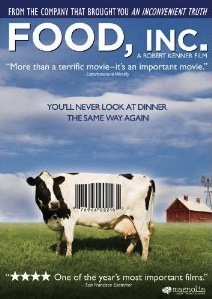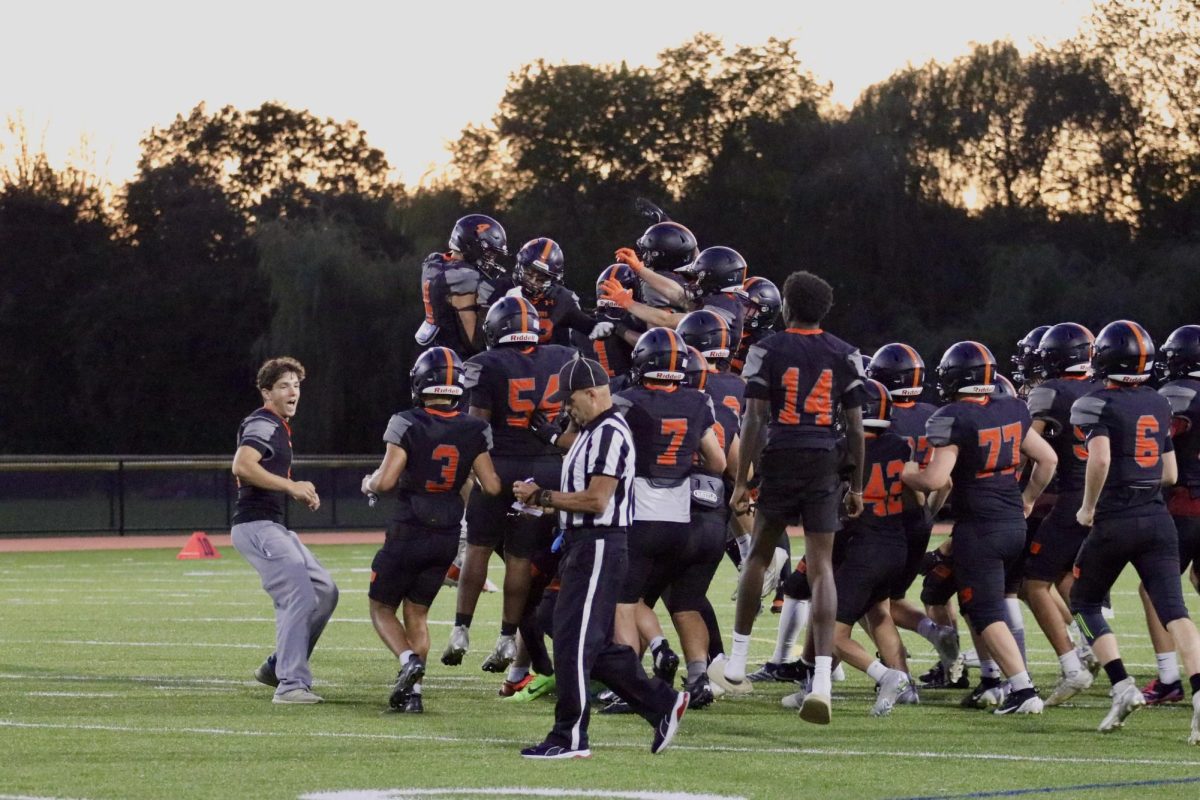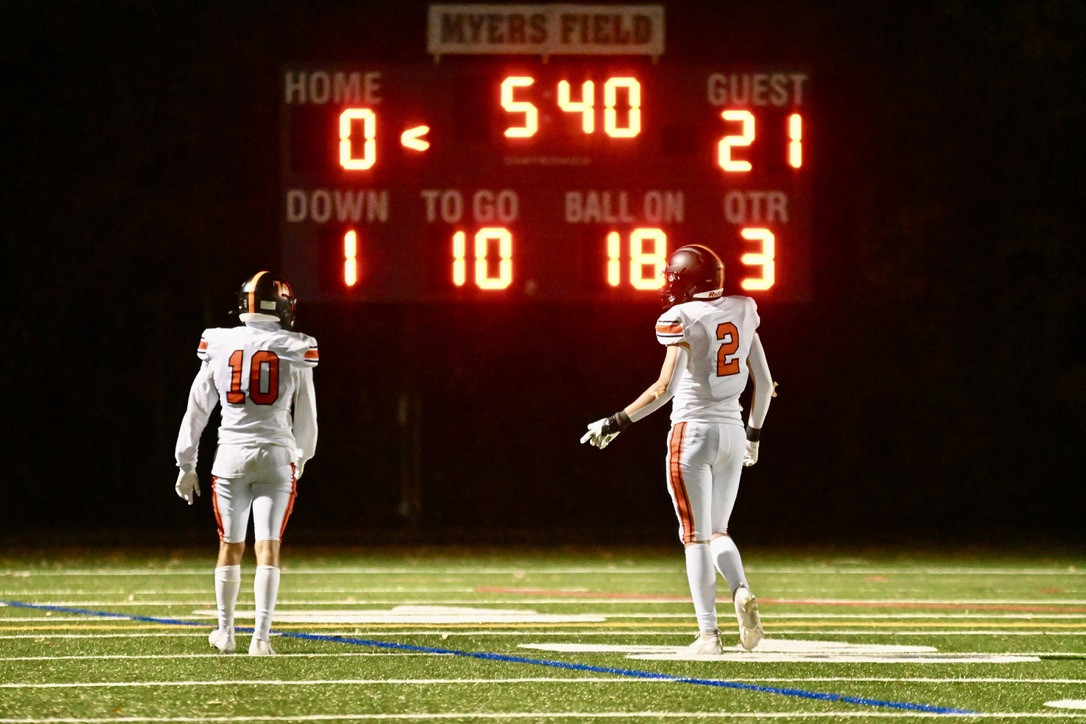Food, Inc. is a visually and gastronomically unappetizing excursion into the world of industrial food production. The phrase “seeing is believing” truly applies here. Countless people have refused to see this movie for fear of getting grossed out or losing their lunch, confident that there is very little they can do about the possible wrongs that they might see. However, sticking our heads in the sand will only allow the damage to continue.
If you are one of the few brave souls who is concerned enough about what goes into our bodies and environment, Food, Inc. will treat you to thought-provoking visits to places of mass beef, pork, poultry, and corn production that the majority of the population is unaware of.
The food industry’s quest is to provide fatter, faster, bigger and cheaper products. According to the movie’s website, approximately 10 billion animals (chickens, cattle, hogs, ducks, turkeys, lambs and sheep) are raised and killed in the US annually. Nearly all of them are raised on factory farms under inhumane conditions.
Factory farming is an attitude that regards animals and the natural world merely as commodities to be exploited for profit, according to farmsanctuary.org. One of the film’s narrators, Michael Pollan, also the author of An Omnivore’s Dilemma, calls it, “the spinning of this pastoral fantasy.” Pollan helps illustrate the point, explaining that the companies deliberately cover up the process so we don’t see how our food gets to our plate and that we know very little about the “food” we eat every day.
These industrial farms are also dangerous for their workers, pollute surrounding communities, are unsafe to our food system and contribute significantly to global warming. The pesticides and fertilizers that are used for cropland cause soil erosion; in addition, these chemicals cause toxic runoff and emit a lot of greenhouse gases. According to coolfoodscampaign.org, once the food is grown, it is packaged and transported an average of 1,500 miles. That’s a lot of carbon dioxide emissions.

We are so used to seeing the foods we buy neatly packaged and covered with cellophane, we no longer make the connection to how our food got to our supermarkets. Since we are so removed from the growth, process, and distribution of our food, it has become difficult to make that connection; once we see and understand the process, it can be quite shocking.
Meanwhile, multinational, profit-driven corporations are painstakingly hiding these implications. This documentary reveals some startling examples of corporate evasion and malfeasance. Barbara Kowalcyk, a mother whose son died from eating a contaminated hamburger, is scared of criticizing the company that killed her son. Texas Cattle Ranchers, a meat company, sued Oprah Winfrey because she criticized their meat; she had declared that she would no longer buy ground beef from them due to a salmonella outbreak. According to Food, Inc., companies are purposefully covering up their activities in order to avoid a public relations nightmare.
- The point is that the way the food is processed and grown can have an effect on our well-being. Many of the current health problems are associated with what at we eat and the way we eat it. Anybody unable to connect the dots between various food-borne illnesses and food industry product recalls should see this movie. Or, if you’re concerned about skyrocketing obesity and diabetes rates, this movie may clear up some of your questions and even spur you into action.
- [adrotate group = “2”]
- This film is not mere propaganda of the “politically correct” left. At the very least, it should motivate anybody who sees it to reconsider what they put into their bodies and perhaps try to influence others’ choices and actions. Food may have become cheaper and plentiful, but the question is, is it healthy for the environment and us? The answer is no.
- Simple excuses like “I alone cannot change the system” do not fly. Consumers can vote with their dollars, choosing with care the produce, meat and everything else we buy. We all share the future of this planet. Everybody needs to assume a bit of responsibility for it. Regardless of our different beliefs, this issue affects all of our lives. We don’t want our descendants to be asking us, “What were you thinking?”
In short, see the movie, maybe even before your next meal. Bon appétit!

![During the WHS club fair, senior Molly Bergeron is watching a student sign up for her club, Eliza J. Norton Foundation. In this club, students meet every week and come up with ideas to spread the message. "[This club] really touches a lot of people in the town," Bergeron said.](https://waylandstudentpress.com/wp-content/uploads/2025/10/IMG_1335-1200x800.jpg)































irritated • May 4, 2010 at 6:14 PM
btw you can't watch the linked-to video on school computers cause they apparently don't have the most recent Java (and given what happened the last time I tried to update a school computer, I'm not gonna try again.) I suggest that in the future people make sure their links are actually follow-able before putting them up.
Manda • Mar 29, 2010 at 2:03 AM
Idk, Supersize Me made me really hungry for McDonald's.
And no, I'm not trolling. I'm being serious. This movie, however, sounds kind of interesting.
Val • Mar 25, 2010 at 7:26 PM
good job. if only everybody paid attention to movies like that. keep spreading the word
Student • Mar 25, 2010 at 5:31 PM
I saw this movie, ordered and ate a Big mac, and then slept soundly. People need to realize that food is food and if you can't stomach seeing what you eat, then simply don't eat it. But for the love of god, don't complain about it
Sasha • Mar 26, 2010 at 10:07 AM
huh, so lets let those poor cows suffer???? those pigs??? etc….
one word comes to mind…. denial!!
plus factory farming is the number one cause of global warming…
anon • Mar 27, 2010 at 1:42 AM
Let the poor cows suffer? How about that poor apple i just ate? Or that banana?
Think about the plants!
no, but in all seriousness, they're all just living beings. at some point you just have to stop caring and take a bite out of that delicious burger.
morning • Mar 26, 2010 at 9:19 PM
Food isn't just food. In todays America, food gets so screwed up so that it tastes good. Nutritional value goes down the toilet and consumers are lied to so that the company's products are bought.